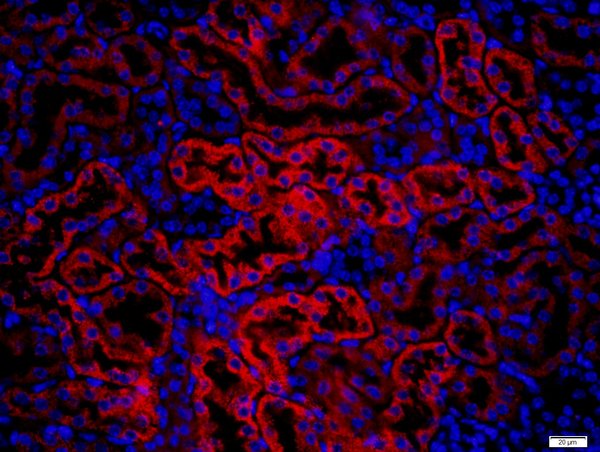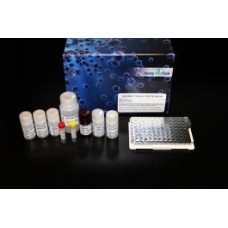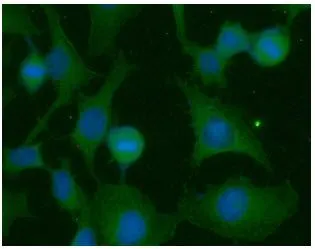RAS antibody [F132-62]
GTX16907
ApplicationsImmunoFluorescence, ImmunoPrecipitation, ImmunoCytoChemistry, ImmunoHistoChemistry, ImmunoHistoChemistry Frozen, ImmunoHistoChemistry Paraffin
Product group Antibodies
ReactivityHuman, Mouse, Rat
TargetKRAS
Overview
- SupplierGeneTex
- Product NameRAS antibody [F132-62]
- Delivery Days Customer9
- Application Supplier NoteFor IF: Use at a concentration of 1.5 - 2.5 microg/ml. For IHC-P: Use at a concentration of 4 - 6microg/ml. For IHC-Fr: Use at a concentration of 4 - 6microg/ml. For IP: Use at a concentration of 3 - 5microg/ml. Not suitable for use in Western Blot. Optimal dilutions/concentrations should be determined by the researcher.
- ApplicationsImmunoFluorescence, ImmunoPrecipitation, ImmunoCytoChemistry, ImmunoHistoChemistry, ImmunoHistoChemistry Frozen, ImmunoHistoChemistry Paraffin
- CertificationResearch Use Only
- ClonalityMonoclonal
- Clone IDF132-62
- Concentration0.1 mg/ml
- ConjugateUnconjugated
- Gene ID3845
- Target nameKRAS
- Target descriptionKRAS proto-oncogene, GTPase
- Target synonyms'C-K-RAS, C-K-RAS, CFC2, K-RAS2A, K-RAS2B, K-RAS4A, K-RAS4B, K-Ras, K-Ras 2, KI-RAS, KRAS1, KRAS2, NS, NS3, OES, RALD, RASK2, c-Ki-ras, c-Ki-ras2, GTPase KRas, K-ras p21 protein, KRAS-ENOPH fusion, Kirsten rat sarcoma viral oncogene homolog, Kirsten rat sarcoma viral proto-oncogene, Kras-Enoph1 fusion protein, PR310 c-K-ras oncogene, c-Kirsten-ras protein, cellular c-Ki-ras2 proto-oncogene, cellular transforming proto-oncogene, oncogene KRAS2, proto-oncogene GTPase, transforming protein p21, v-Ki-ras2 Kirsten rat sarcoma 2 viral oncogene homolog
- HostMouse
- IsotypeIgG2b
- Scientific DescriptionThis gene belongs to the Ras oncogene family, whose members are related to the transforming genes of mammalian sarcoma retroviruses. The products encoded by these genes function in signal transduction pathways. These proteins can bind GTP and GDP, and they have intrinsic GTPase activity. This protein undergoes a continuous cycle of de- and re-palmitoylation, which regulates its rapid exchange between the plasma membrane and the Golgi apparatus. Mutations in this gene cause Costello syndrome, a disease characterized by increased growth at the prenatal stage, growth deficiency at the postnatal stage, predisposition to tumor formation, mental retardation, skin and musculoskeletal abnormalities, distinctive facial appearance and cardiovascular abnormalities. Defects in this gene are implicated in a variety of cancers, including bladder cancer, follicular thyroid cancer, and oral squamous cell carcinoma. Multiple transcript variants, which encode different isoforms, have been identified for
- ReactivityHuman, Mouse, Rat
- Storage Instruction2°C to 8°C
- UNSPSC12352203





